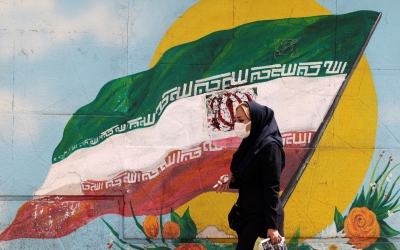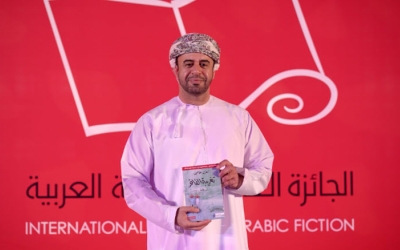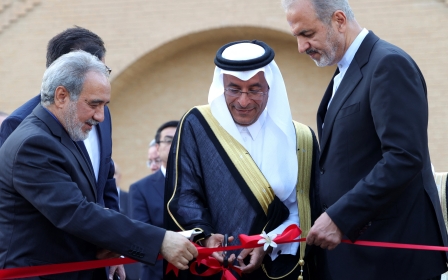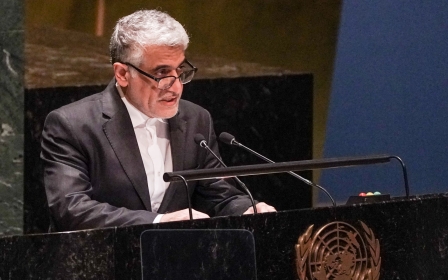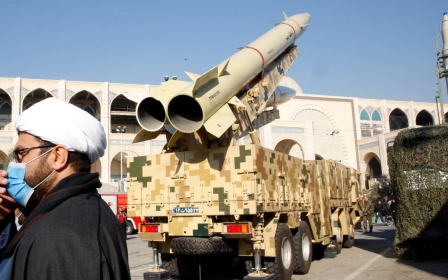Iranian press review: Analysts warn of impact of Erdogan's re-election for Iran
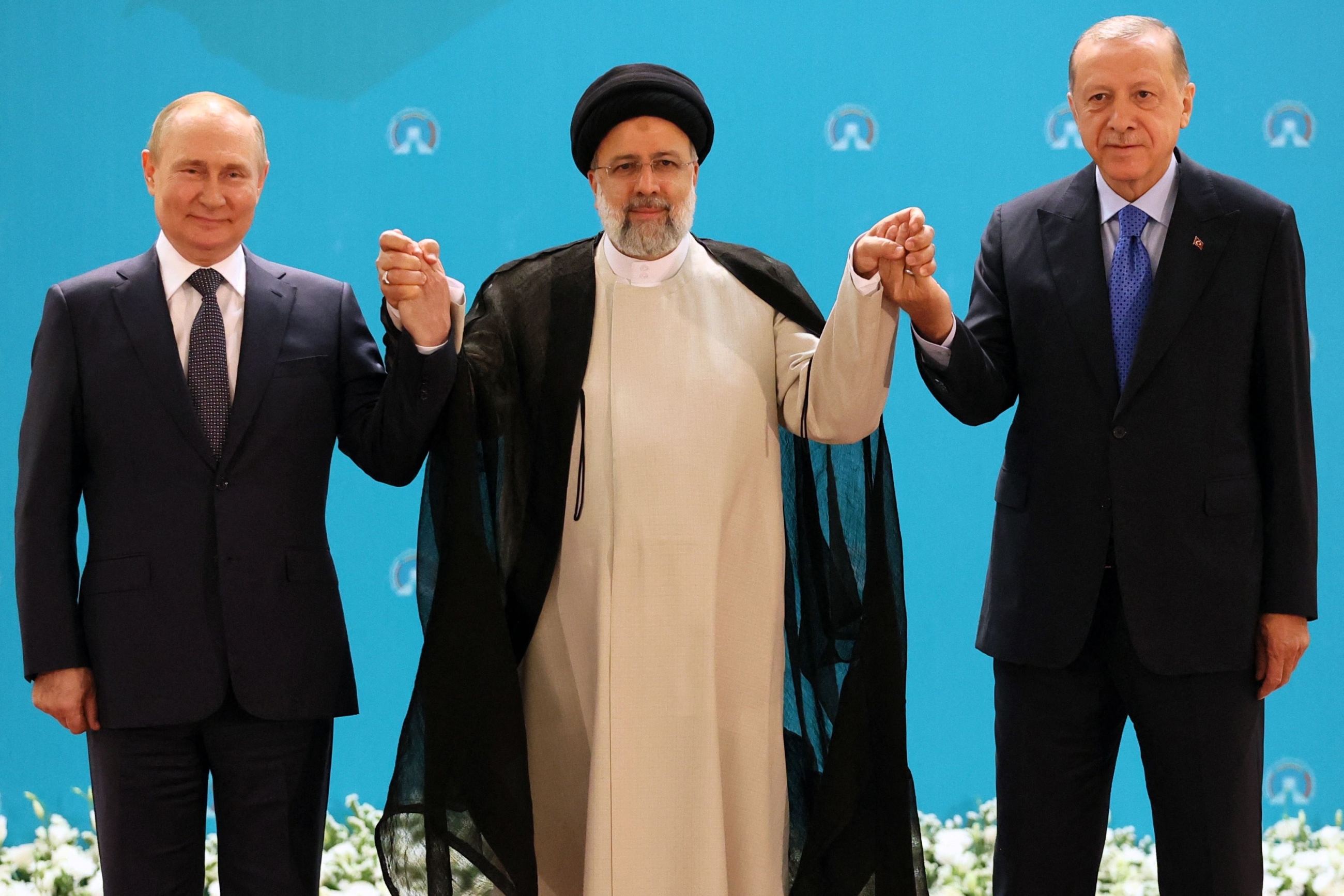
Erdogan's victory 'threatens Iran's interests'
The progressive Ham Mihan daily, in a series of interviews with analysts and foreign policy experts, raised the alarm over the potential negative consequences for Iran of the re-election of Turkish President Recep Tayyip Erdogan.
Under the headline "Erdogan's gruesome dream", the daily examined Turkey's attempts to increase its influence in the region as well as its policies in controlling the water resources from the Tigris and Euphrates, two major rivers in the Middle East.
Analysts who talked with the daily argued that Erdogan would continue his regional policies to create a "New Ottoman Empire" and connect the Turkic countries, such as Azerbaijan, by land.
Ali Ziaei, an international transport expert, told the daily that linking Turkey to Azerbaijan through Armenia's southern province of Syunik would be one of Erdogan's main objectives in his new term in office.
New MEE newsletter: Jerusalem Dispatch
Sign up to get the latest insights and analysis on Israel-Palestine, alongside Turkey Unpacked and other MEE newsletters
"Turkey has been insisting on establishing the Zangezur corridor. This will happen through annexing Armenia's Syunik province to Azerbaijan, which would result in disconnecting Iran from its neighbouring northern countries," Ziaei said.
Ahmad Kazemzadeh, a hydro politics expert, stressed that Erdogan used the dams built in the Southeastern Anatolia Project (GAP) to exert pressure on Iran, Iraq and Syria by cutting off these countries' water shares.
"So far, Turkey has not adhered to international laws about shared water resources … and has only focused on its water needs. With Erdogan's victory, hopes of joining the European Union have faded for Turkey so that it will follow hydro politics without considering international laws," Kazemzadeh explained.
Activist sentenced to over 45 years in jail
A branch of Iran's Islamic Revolutionary Court in the city of Isfahan sentenced a prominent political activist, Heshmatollah Tabarzadi, to 45 years and six months in prison.
Tabarzadi was arrested along with his two sons in the city of Golpayegan a few days after the death of 22-year-old Kurdish woman Mahasa Amini in morality police custody. He was one of the activists who supported the protestors.
Amini's death sparked nationwide demonstrations in Iran, during which more than 500 were killed, and about 22,000 protestors and political activists were arrested.
Among the dissidents arrested since last September, Tabarzadi has received one of the longest sentences, and since his arrest, he has been kept in pre-trial detention.
Tabarzadi's daughter said that he was convicted of charges such as "spreading corruption on earth", "propaganda against the establishment", "insulting" Iran's first and current supreme leaders, "collaborating with the enemy governments by interviewing with opposition media", and "encouraging the public to revolt".
The court verdict was appealable, but Tabarzadi said he would not request an appeal because he did not recognise the court.
Since 1994, this former student activist and journalist has been arrested several times. In 2000, he was sentenced to a nine-year prison, and for ten years he was deprived of all social services. In 2010 he received another nine-year sentence and 74 lashes for his activism.
US to allow release of Iran's $23.7bn
The US agreed to release Iran's $23.7bn frozen assets in South Korea, Iraq and the International Monetary Fund (IMF), despite the sanctions on international bank transfers to Iran, the ISNA news agency reported.
On Tuesday, ISNA wrote that during a two-visit to Tehran, Oman's Sultan Haitham bin Tariq Al Said mediated the release of the foreign prisoners in Iran and Tehran's access to its money blocked in other countries.
Some local media suggested an agreement was made after Tehran freed two dual Iranian-Austrian nationals, Masoud Mosaheb and Kamran Ghaderi, and a Danish citizen, Thomas Kjems, on 2 June.
According to ISNA, Iran will have access to $7bn in South Korea and $10bn in Iraq. The report added that following a meeting between Mohammad Reza Farzin, Iran's central bank director, and the IMF managing director, Kristalina Georgieva, the international organisation would permit Iran to access $6.7bn in funds.
However, the report did not clarify if the money would be transferred to Iran or if officials in Tehran would only be allowed to import food and essential goods in return for the frozen assets.
On 1 June, Iran's Oil Minister Javad Owji told reporters that Iraq only gives food and essential goods for the gas that it imports from Iran.
Despite the US sanctions, Iraq is one of the leading customers of Iran's gas, and in the previous Iranian year, which ended on 21 March, it imported over $3.8bn gas from Iran.
Officials in Tehran have not revealed the exact amount of Iraq's debt due to the gas imports, but some put it at about $17bn.
*Iranian press review is a digest of news reports not independently verified as accurate by Middle East Eye.
Middle East Eye delivers independent and unrivalled coverage and analysis of the Middle East, North Africa and beyond. To learn more about republishing this content and the associated fees, please fill out this form. More about MEE can be found here.


